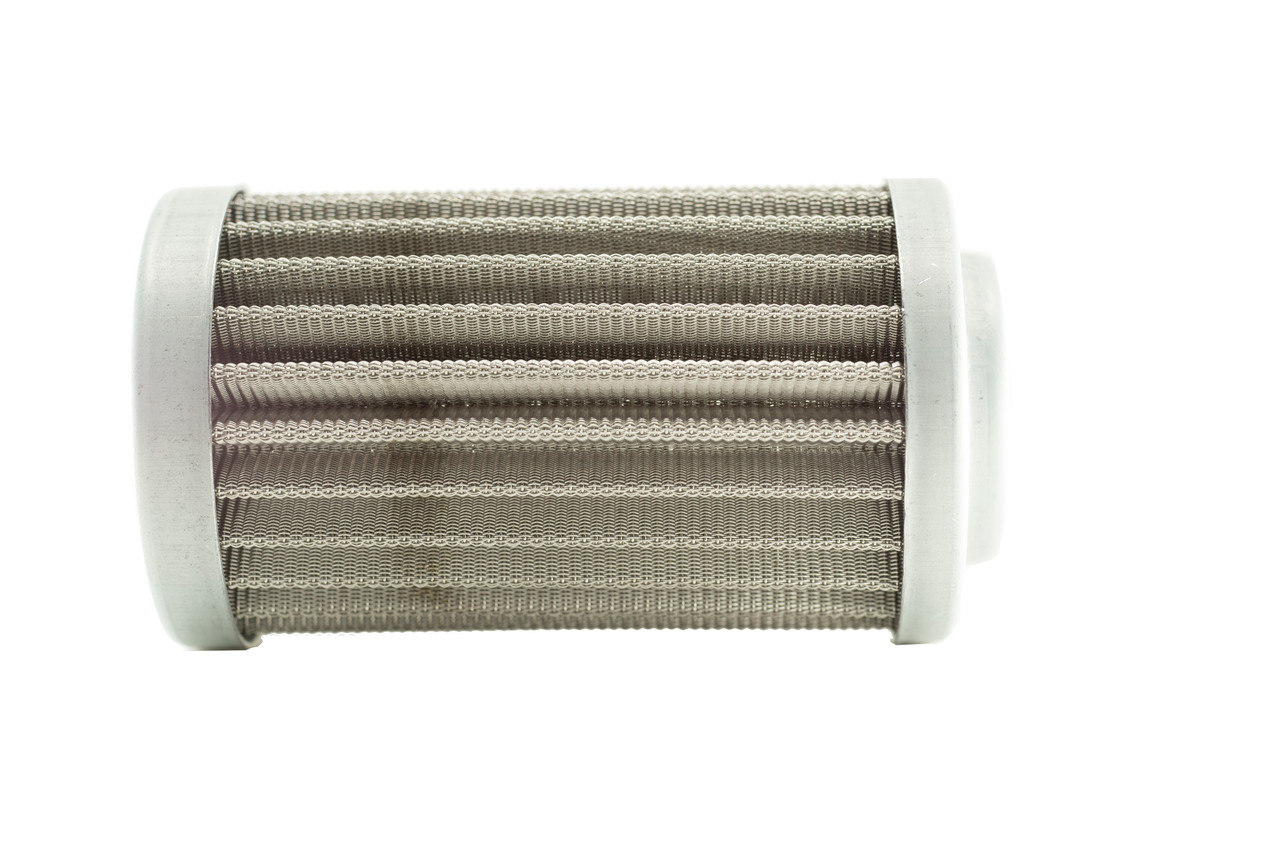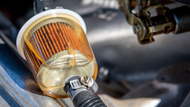How To Check If Fuel Filter Is Clogged
May 23rd 2025
Knowing how to tell if your fuel filter needs to be replaced can help cut the cost of repairing your engine and keep your engine running smoothly. Fuel filters can cause serious trouble when they aren’t effective, hurting your vehicle’s fuel system by blocking and clogging while at the same time robbing your machine of performance. When they become obstructed, they can lead to a number of performance problems that can impact everything from gas mileage to engine dependability.
Modern vehicles rely on clean fuel delivery to operate efficiently, and a clogged filter can significantly impact this process. Whether you're dealing with an in line fuel filter, a canister-style filter, or a filter integrated into the fuel pump assembly, knowing the signs of blockage can help you address problems before they lead to more serious issues.
The fuel filter works together with other fuel system components, including the fuel pump adapter and fuel filter bracket, to help provide consistent fuel delivery. When any part of this system becomes compromised, it can create various problems that affect engine performance, fuel economy, and overall vehicle reliability.
Common Symptoms of a Clogged Fuel Filter

Recognizing the symptoms of a clogged fuel filter early can save you from more serious engine problems and costly repairs. These symptoms typically develop gradually as the filter becomes increasingly blocked, making early detection crucial for preventing damage to other fuel system components.
1. Engine Misfires or Hesitation
If your vehicle misfires or hesitates while accelerating, it could be due to clogged fuel lines. When fuel filters get clogged, they can cause all sorts of problems. Enough pressure from restricted fuel flow for the fuel system to produce a lean condition causing the engine to stumble and miss. This is more noticeable when the engine is at an idle.
This misfire is a result of fuel not reaching the combustion chambers and the engine no longer getting the balanced air/fuel ratio that it requires in order to run smoothly. This hesitation may be more noticeable when accelerating from a stop or during initial acceleration.
2. Trouble Starting the Engine
A clogged fuel filter often makes starting the engine more difficult, especially during cold starts or after the vehicle has been sitting for extended periods. The restriction in fuel flow means the fuel pump must work harder to deliver enough fuel pressure to the engine, resulting in extended cranking times or difficulty starting.
You may notice that the engine cranks longer than usual before firing, or it may require multiple attempts to start successfully. In some cases, the engine may start but then immediately stall, requiring additional attempts to achieve stable idle. This typically worsens over time as the filter becomes more severely clogged.
3. Poor Acceleration
Restricted fuel flow from a clogged filter directly impacts acceleration performance. The engine may feel sluggish or unresponsive when you press the accelerator pedal, especially when you need to accelerate quickly.
Performance vehicles are particularly susceptible to noticeable acceleration problems when fuel filters become clogged, as these engines typically require higher fuel flow rates to achieve optimal performance. Even a partially clogged filter can significantly impact the power output of high-performance engines.
4. Decreased Fuel Efficiency
Clogged fuel filters force the gas pump to work harder than it should to maintain fuel pressure in the fuel system and this will also rob fuel from your car's performance, leading to worse gas mileage. The engine also may not be running as smoothly since it is not getting the same amount of fuel and may be using more fuel because of improper fuel delivery.
You might find yourself visiting the gas pump more often than you’re used to, or you could discover that your car is getting worse gas mileage without any alterations in your driving style or conditions. This reduced effectiveness results from the fact that the engine management system can compensate for non-uniform fueling by manipulating the fueling timing and duration.
5. Stalling at Low Speeds
A clogged fuel filter can cause the engine to stall, particularly at low speeds or idle conditions. This occurs because the fuel pump may be unable to maintain adequate fuel pressure when engine demand changes, such as when coming to a stop or idling at traffic lights. In some cases, the engine may restart immediately after stalling, while in others, it may require several minutes before a successful restart is possible. This variability often depends on the severity of the blockage and the fuel system's ability to maintain residual pressure.
6. Check Engine Light
When the check engine light comes on due to fuel filter issues, diagnostic trouble codes related to fuel pressure, fuel trim, or lean fuel conditions may be stored in the vehicle's computer memory. These codes can help confirm fuel filter problems and let you know what repairs need to be made.
It's important to note that the check engine light can indicate many different problems, so additional diagnostic steps are necessary to confirm that a clogged fuel filter is the root cause of the check engine light coming on.
How to Diagnose a Clogged Fuel Filter

Proper diagnosis of fuel filter problems requires an approach combining visual inspection, pressure testing, and careful observation of system behavior. These techniques help confirm whether replacement fuel filter installation is necessary.
Step-by-Step Visual Inspection
For accessible in line fuel filter installations, examine the filter housing for signs of external contamination, corrosion, or damage to the fuel filter bracket or mounting hardware. Check all fuel line connections for signs of leakage, which could indicate system problems beyond just filter clogging.
If your vehicle has a transparent or semi-transparent filter housing, you may be able to see the filter directly to check if it’s clogged. A severely clogged filter often appears dark or contains visible debris accumulation. However, many modern filters use opaque housings that prevent visual inspection of the internal filter element.
Inspect the fuel lines connected to the filter for signs of collapse, kinking, or damage that could contribute to fuel flow restriction. Pay particular attention to rubber fuel lines that may have deteriorated or become soft, as these can collapse under vacuum and mimic clogged filter symptoms.
Fuel Pressure Test
Connect the fuel pressure gauge to the fuel system test port, typically located on the fuel rail or fuel line near the engine. With the engine running, compare the measured pressure to the manufacturer's specifications. Significantly low pressure readings often indicate fuel filter restriction or fuel pump problems.
Perform the test under various engine conditions, including idle, moderate RPM, and under load. A clogged filter typically shows the greatest pressure drop under high-demand conditions when fuel flow requirements are highest. Document pressure readings at different RPM levels to identify patterns consistent with filter restriction.
Listen for Fuel Pump Noise
A clogged fuel filter forces the fuel pump to work harder to maintain system pressure, often resulting in increased pump noise that can be heard during operation. Listen carefully to fuel pump operation during various engine conditions to identify abnormal sounds.
Normal fuel pump operation produces a quiet, consistent humming sound. When fighting against a clogged filter, the pump may produce louder whining, buzzing, or grinding noises that indicate excessive strain. These sounds are often most noticeable during startup when the pump initially pressurizes the system.
When to Clean a Fuel Filter
While most modern fuel filters are designed to be disposed of and fully replaced, some older or specialized filters can be cleaned and used again. Understanding when cleaning is appropriate versus when replacement is necessary can help you make informed maintenance decisions.
For most modern vehicles, the cost and time associated with filter cleaning efforts exceed the expense of installing a new replacement fuel filter. Additionally, new filters provide optimal filtration performance and reliability that cleaned filters cannot match.
Tips to Prevent Future Fuel Filter Clogs
Preventing fuel filter clogs requires attention to fuel quality, regular maintenance, and proper fuel system care. These preventive measures can significantly extend filter life and reduce the frequency of fuel system problems.
Replace fuel filters according to manufacturer recommendations or more frequently if you frequently drive in dusty conditions or use lower-quality fuels. Replacing your filter regularly prevents the filter from becoming severely clogged and protects other fuel system components.
Conclusion
Learning to identify the symptoms of a clogged fuel filter and perform basic diagnostic procedures can save you time, money, and frustration while maintaining optimal vehicle performance. Regular attention to fuel filter condition prevents more serious problems and ensures reliable fuel delivery to your engine.
Whether you're dealing with traditional fuel filters mounted in accessible locations or modern integrated systems requiring specialized procedures, understanding these diagnostic principles helps you make informed maintenance decisions. Remember that fuel system work can be complex and potentially dangerous, so don't hesitate to consult professional technicians when you're unsure about diagnostic results or repair procedures.
By staying alert to the warning signs and performing regular inspections, you can keep your fuel system operating efficiently and avoid the inconvenience of unexpected breakdowns caused by clogged fuel filters.

